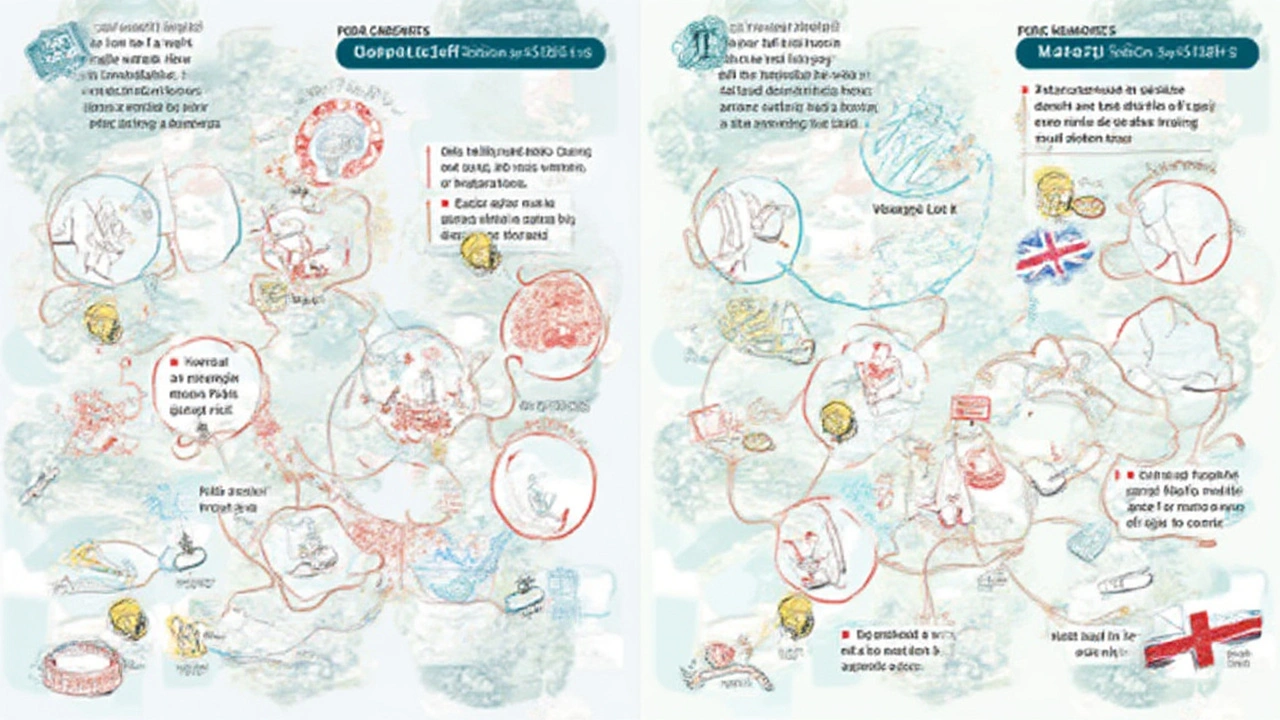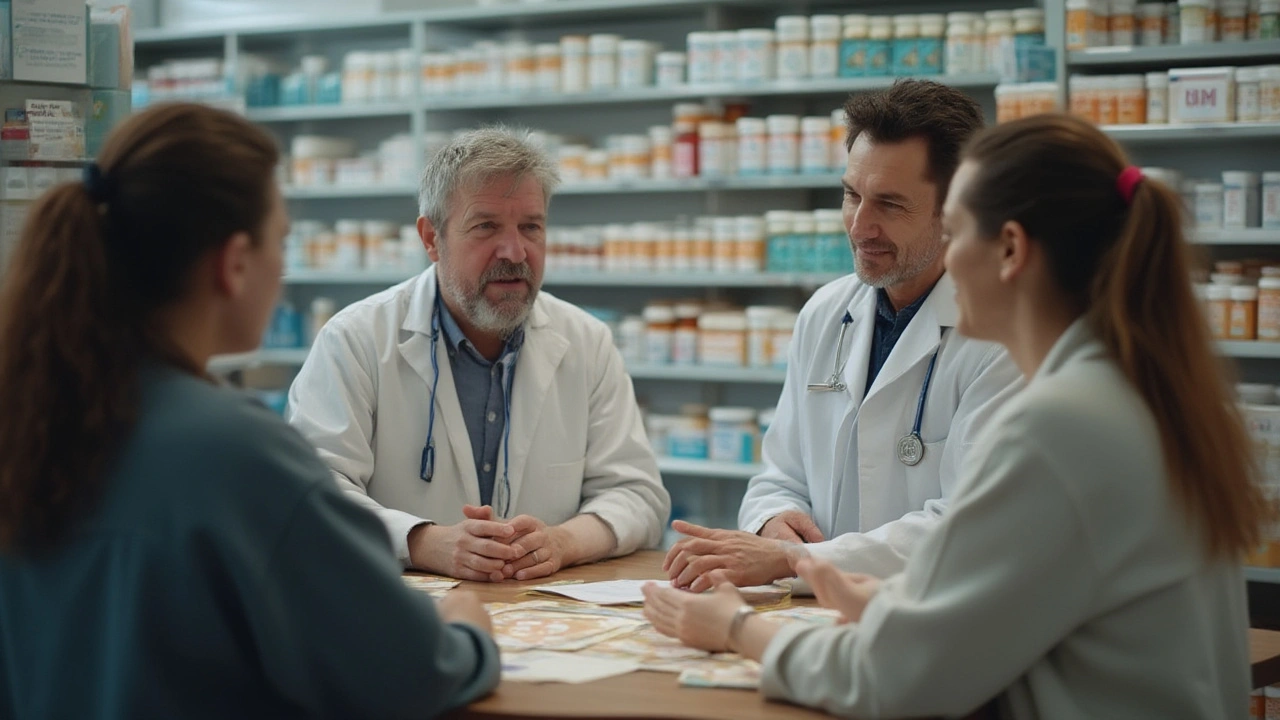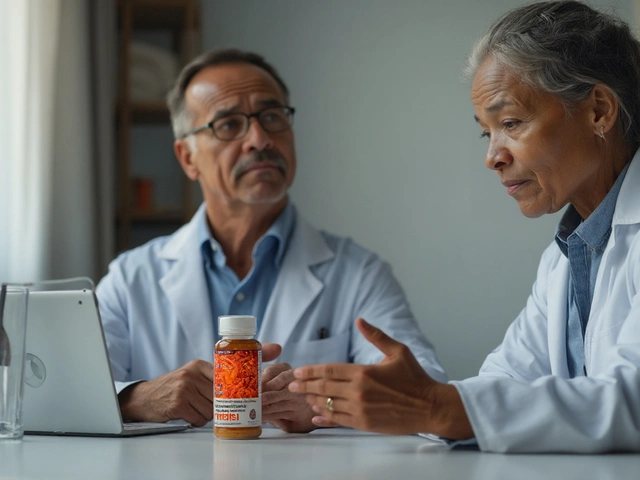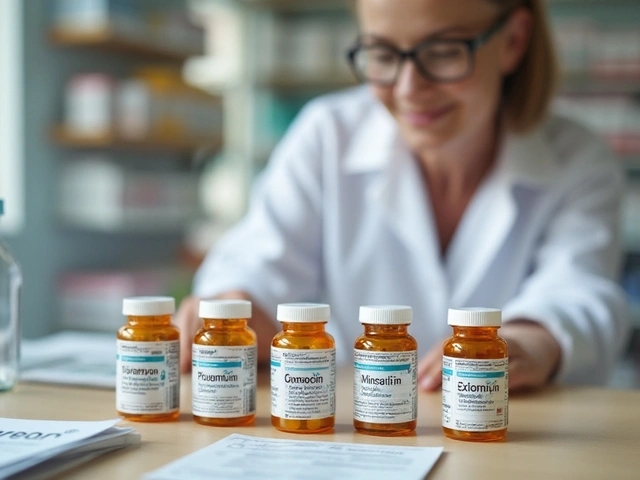Lately, stories of everyday folks getting hooked on medications meant to stop nerve pain are way too common. Here’s the twist: it’s not always the notorious heavy hitters like opioids that cause trouble. Gabapentin—once hailed as a wonder drug for neuropathic pain—now grabs headlines for a surprising reason: people are misusing it more than ever. Why? It’s cheap, easy to get, and doctors prescribe it a ton. Some even say gabapentin has quietly become “the opioid of non-opioids.” If you’ve ever been prescribed it, you might wonder: is it really that risky? Or are there better, safer neuropathic meds out there?
What Is Gabapentin, and Why Is It Under the Microscope?
Gabapentin was first approved in the US back in the 1990s and started life as an anti-seizure drug. It shifted gears quickly, becoming a go-to for nerve pain—from shingles to diabetic neuropathy and even fibromyalgia. Known by brand names like Neurontin, you’ll probably find gabapentin in just about every pain clinic’s prescribing toolkit. The real shocker? By 2023, US doctors were writing almost 70 million gabapentin prescriptions a year, making it one of the top-ten most prescribed meds in the country. That level of use means gabapentin is everywhere—and with wide reach comes a new set of challenges.
So what’s the actual problem? Unlike opioid painkillers, gabapentin isn’t supposed to get you “high.” But when combined with other substances—like opioids or alcohol—people report a sense of euphoria or deep relaxation. Some users chase these effects by taking way more than prescribed. According to studies in 2022, almost 20% of people with opioid use disorder report misusing gabapentin. What seemed like a safe bet is now raising all sorts of red flags, both in clinics and on the street.
The tricky part is that gabapentin's low risk for overdose by itself fooled a lot of folks—doctors included. The truth: the real danger shows up when people mix it with depressants like opioids or benzodiazepines. In those cases, breathing can become dangerously slow, leading to hospitalizations or worse. Several health authorities in the UK and US flagged gabapentin as a serious risk for misuse, adding warnings or tighter controls in several states and countries.
There’s also another layer: gabapentin withdrawal. If you take high doses for months and then decide (or forget) to stop, you might face shakes, sweating, anxiety, even seizures. This is something doctors have to warn about openly, even as they try to help patients out of opioid dependency with “safer” scripts like gabapentin.
What's wild is that less attention gets paid to gabapentin than, say, benzodiazepines or stimulants—yet the data is stacking up. One UK surveillance study in 2021 linked gabapentin to spikes in drug-related deaths, especially for people already at risk from opioids. The lesson is clear: just because a drug isn’t scheduled like heavy narcotics doesn’t mean it’s risk-free.
A table helps make sense of where gabapentin stands among neuropathic agents when it comes to misuse risk:
| Drug | Primary Use | Abuse Potential | Common Side Effects | Regulations |
|---|---|---|---|---|
| Gabapentin | Neuropathic pain, seizures | Moderate (esp. in substance users) | Drowsiness, dizziness | Schedule V in some US states; unregulated federally |
| Pregabalin (Lyrica) | Neuropathic pain, seizures | High (more euphoric effects) | Drowsiness, weight gain | US Schedule V; controlled in UK |
| Carbamazepine | Seizures, neuralgia | Low | Drowsiness, rashes | Prescription-only |
| Duloxetine | Nerve pain, depression | Very low | Nausea, dry mouth | Prescription-only |
| Amitriptyline | Nerve pain, depression | Very low | Dry mouth, weight gain | Prescription-only |
If you’re already on gabapentin, asking questions about these risks isn’t just smart—it’s necessary. And if you’re weighing options, knowing where each drug fits in the “misuse risk” spectrum can help you and your doctor make smarter choices. Don’t just accept a prescription at face value; dig deeper, especially if you have a history of substance use disorder (or know someone who does).

Regulatory Status: Is Gabapentin a Controlled Substance or Not?
This is where things get really wild. Gabapentin sits in a regulatory gray zone in most countries. In the US, it’s not a federally controlled substance, but as of 2024, a patchwork of about nine states—including Kentucky, Virginia, and Tennessee—classify it as Schedule V. That means pharmacists and doctors keep a closer eye on scripts, using prescription monitoring programs that track every order. Even then, it’s still much easier to get a gabapentin refill than an opioid or a benzo.
Compare that with pregabalin (Lyrica), gabapentin’s chemical cousin. Pregabalin gives a noticeably “stronger” effect and is a lot more tightly regulated—Schedule V in the US, a controlled Class C drug in the UK. It’s even banned outright in some Middle Eastern countries. So why the difference? Mainly, researchers found pregabalin to create more “liking” (aka euphoria) in recreational users than gabapentin, driving up the risk of dependence and black-market sales. By putting gabapentin one notch below, regulators tried to balance patient access with harm reduction—but the numbers suggest a rethink may be coming soon.
Jump across the Atlantic and the UK treats gabapentin much more seriously. Since 2019, the UK made gabapentin a Class C controlled substance, meaning doctors have stricter rules for prescribing and patients face tougher fines if caught selling or sharing it. That move came after years of increasing overdose reports tied to polydrug users—especially in areas hit hard by opioid crises.
Talk to folks in pain clinics and pharmacies, and you’ll hear frustration. Some see tighter rules as life-saving, others as a headache for patients who really do need gabapentin. It’s clear that the regulatory patchwork is confusing patients and prescribers. If you’re traveling or moving between states, double-check your prescription status with state or national boards—rules change fast.
If you think gabapentin might not be your best bet, it’s worth checking out an alternative for Gabapentin—especially if risk of dependency is a concern. Sometimes a simple switch to duloxetine or amitriptyline does the trick with much less worry for misuse. It's always worth talking this over with your healthcare provider.
Another tip: save prescription bottles and pharmacy print-outs, especially if crossing state lines. Some states require proof that your prescription is legit. A few minutes of prep can save you a long chat at a TSA checkpoint or pharmacy window.
And don’t forget about insurance. Some plans have wised up to the abuse risk and put tighter refill restrictions or step therapy rules in place for both gabapentin and pregabalin. If you’re having trouble getting a refill or prior authorization, it might not be your doctor’s fault—many plans now require extra paperwork for quantities that suggest possible overuse.

Monitoring, Prevention, and Tips for Staying Safe with Neuropathic Meds
If you or a loved one is taking gabapentin—or any neuropathic drug—there are smart ways to keep things on track. First and foremost, don’t up your dose without a doctor’s say-so. This is where a lot of people run into trouble: you build tolerance, your pain returns or anxiety spikes, and you take a little more. Before you know it, your body (and brain) expects that extra hit, and stopping is way harder than you ever expected.
If your doctor prescribes gabapentin, ask if you’re being set up for regular check-ins. The CDC and several pain management groups now recommend frequent follow-ups, especially during the first 6-12 months. That’s when people are most likely to take “extra” doses, swap pills with friends, or experiment with mixing other meds. Some clinics use electronic dispensing systems or random pill counts, which can seem annoying but are proven to reduce risks.
Don’t ignore the basics: write down when you take your doses, note any side effects (drowsiness, mood changes, dizziness), and share these notes at every checkup. If you’re feeling cravings—yes, even for a nerve pain drug—it’s important to say something. Most health teams would much rather switch your med than see you go down the rabbit hole of misuse or withdrawal. Never share your pills, even if a friend swears they’ve run out. Drug levels vary hugely between people, so a safe dose for you could be a nightmare for somebody else.
If you have a history of substance use, bring it up—even if it’s awkward. Studies show that people with any past struggles (alcohol, opioids, stimulants) are more likely to misuse gabapentin or pregabalin. Your provider might choose another agent (like duloxetine or carbamazepine), or add extra safety checks to your treatment plan.
Store your pills in a locked cabinet—sounds extreme, but accidental exposures and theft are on the rise, especially in shared households or college settings. A lockbox from a local pharmacy costs less than $20. Don't leave bottles in your car or bag; it’s an invitation for trouble. Dispose of old or unused pills at a take-back event or through pharmacy mailers—flushing isn't safe for most meds.
Don’t be afraid to ask for an exit strategy. The best doctors map out how you’ll get off gabapentin or taper to a lower dose over time, especially as pain improves or resolves. Quitting suddenly can trigger nasty withdrawal symptoms—so less is definitely more when it comes to tapering off.
And finally, always be alert for scam online pharmacies selling counterfeit gabapentin or alternatives. If a deal looks too good to be true, it probably is.
Here are a few other essential tips to keep your treatment safe:
- Be honest about other meds and supplements you take—drug interactions are common with neuropathic agents.
- Don’t adjust your own doses or schedules—consult your provider first.
- If you get side effects, note what time and what dose—this helps with adjustments.
- If you have trouble with drowsiness, avoid driving or hazardous tasks.
- Check with your provider if you add new drugs, especially CNS depressants (opioids, benzos, alcohol).
As with any medication, knowledge is your best protection. Regular check-ins, safe storage, and genuine conversations with your healthcare team make all the difference for getting pain relief without adding new risks to your life.






Reviews
Gabapentin's this weird limbo drug like it's the opioid of the non-opioid world but nobody wants to admit it
Doctors prescribe it like it's aspirin and then act shocked when people get dependent
It's not about the high it's about the numbness the quiet the absence of pain and anxiety that makes you keep taking it
And yeah withdrawal is brutal you feel like your nerves are screaming through your skin
But here's the thing nobody talks about how many people are on it because they were failed by every other option
We need better meds not just more regulation
Regulation just pushes people to the dark web or to pills they don't understand
From India we see this too 😔
People buy gabapentin from local chemists without prescription because it's cheap and they think 'it's not heroin'
My cousin took it for back pain and ended up needing rehab
But he didn't know he was addicted until he tried to stop
Simple meds like amitriptyline are way safer and cheaper here
Doctors need to talk more and prescribe less 🙏
Let me be clear this isn't about patient care this is about lazy medicine and a culture that wants a quick fix for everything
You want to numb your life? Fine but don't blame the drug blame the person who asked for it and the doctor who handed it out like candy
People don't need gabapentin they need therapy they need to face their pain not chemically erase it
And don't give me that 'but my pain is real' crap if you're taking 3600mg a day you're not managing pain you're chasing a high
And if you're mixing it with alcohol or opioids you're not a patient you're a walking overdose waiting to happen
Regulations are too weak and the medical community is complicit
Stop enabling this crap
Studies show gabapentin has low abuse potential in opioid-naive populations but significantly higher in those with prior SUD
Pharmacokinetics are nonlinear so dose increases don't linearly increase plasma concentration leading to unpredictable effects
Pharmacodynamics involve calcium channel modulation via alpha-2-delta subunit binding which alters neurotransmitter release
Unlike pregabalin it has poor BBB penetration at therapeutic doses but chronic use upregulates transporters increasing bioavailability
Withdrawal syndrome mimics alcohol or benzo withdrawal due to GABAergic system dysregulation
Regulatory status varies because FDA never classified it as controlled due to lack of reinforcing animal studies pre-2010
But post-marketing surveillance shows rising ER visits tied to polypharmacy
Switching to duloxetine reduces misuse risk by 68% in longitudinal cohort studies
Carbamazepine is underutilized due to HLA-B*15:02 screening requirements in Asian populations
Pharmacy monitoring programs reduce diversion by 42% in states with Schedule V status
Bottom line: it's not the drug it's the prescribing culture and lack of non-pharmacological alternatives
Hey if you're reading this and you're on gabapentin and you're scared you're not alone
It's okay to ask for help
It's okay to say 'I think this isn't working for me'
There are other options and they don't have to be scary
Duloxetine? Yeah it can make you nauseous at first but it doesn't make you feel like you're floating into another dimension
Amitriptyline? Old school but it works and no one's selling it on Instagram
And if your doctor won't listen find another one
You deserve pain relief without the risk of becoming someone you don't recognize
Take notes write down how you feel
Ask for a taper plan
Don't let fear keep you stuck
You got this 💪